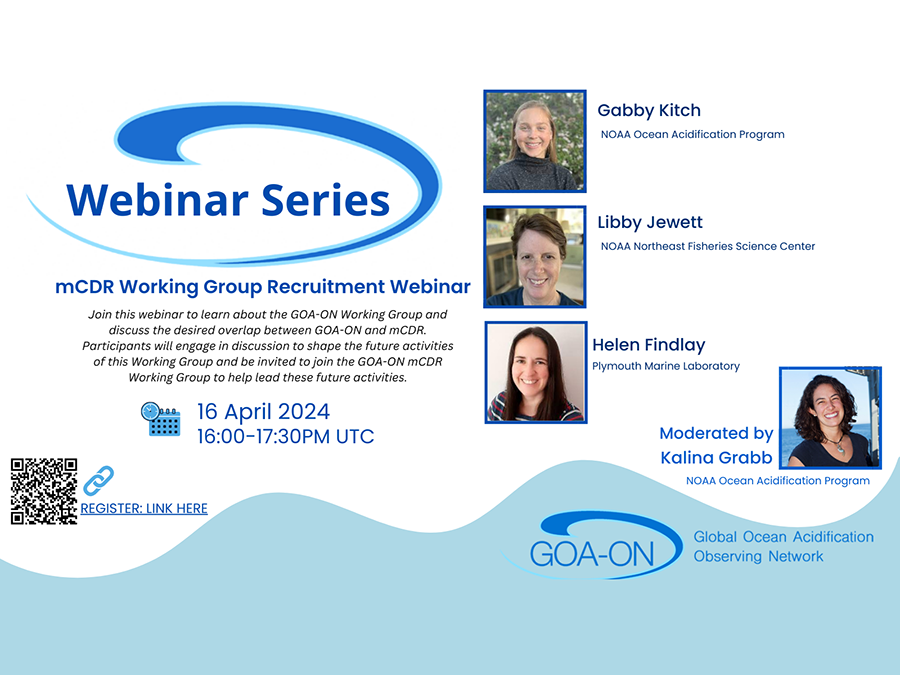Marine Carbon Dioxide Removal Working Group
Overview
Avoiding catastrophic climate change and ocean acidification will require innovative solutions. The Intergovernmental Panel on Climate Change states that all pathways to cap global warming to the 1.5°C warming must employ negative emission technologies, or carbon dioxide removal (CDR) technologies. The ocean can hold up to 42 times more carbon than the land and therefore presents a strong opportunity for carbon dioxide removal (CDR). Furthermore, marine CDR (mCDR) technologies might also have potential to mitigate ocean acidification.
GOA-ON recognizes the increasing interest in mCDR efforts around the world. As a global community of over 1,000 researchers and decision makers in ocean acidification, GOA-ON’s collective expertise can make a critical contribution to ensuring responsible, sustainable, and accountable mCDR research is conducted. Importantly, GOA-ON recognises the need for safe implementation of mCDR, and the network's expertise - which include carbon cycle monitoring and understanding, biological impact assessments, and modeling - can aid in the evaluation and efficacy of mCDR in terms of risks and benefits to ecosystems and societies.
Goals
- Advise the Executive Council on matters relating to GOA-ON’s involvement with mCDR research activities and policy engagement.
- Facilitate and promote the involvement of GOA-ON members in mCDR activities to ensure the appropriate inclusion of ocean acidification expertise in mCDR activities (research and policy).
- Generation of mCDR informational products based on the ocean acidification expertise within the GOA-ON network.
Terms of Reference
mCDR Related Resources
The IPCC’s AR6 WG III CDR Factsheet Outlines techniques that can contribute to removal of carbon dioxide through marine environments |
National Academies of Science, Engineering and Mathematics Research Strategy on Ocean-Based CDR Presents an extensive study about different mCDR techniques |
NOAA’s CDR Strategy Describes how NOAA’s existing assets align with mCDR research needs thereby outlining the potential role of NOAA in the future of mCDR |
Ocean Visions’ Roadmaps for mCDR Showcases the state of research and challenges for a number of mCDR pathways to accelerate testing and development |
The Ocean Conservancy’s Ocean Carbon Dioxide Removal Methods Outlines techniques that can contribute to removal of carbon dioxide through marine environments |
Steering Committee
Chair
- Helen Findlay
Plymouth Marine Laboratory
UK
hefi@pml.ac.uk
Members
- Dick Feely
NOAA Pacific Marine Environmental Laboratory
USA - Libby Jewett
NOAA Northeast Fisheries Science Center
USA - Sam Dupont
University of Gothenburg
Sweden and IAEA OA-ICC
Monaco - Gabby Kitch
NOAA Ocean Acidification Program
USA - Kalina Grabb
GOA-ON Secretariat and NOAA Ocean Acidification Program
USA
We are looking for new members! If you are interested in joining the working group or have questions, please email the GOA-ON Secretariat: secretariat@goa-on.org







